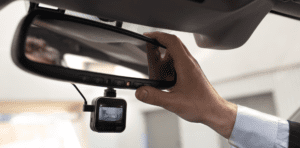Compare cheap car insurance
✔ Compare cheap car insurance quotes
✔ Over 110 insurance providers
✔ Get a quote in minutes
✔ Save up to £504*


Understanding the terms and conditions of your car insurance policy is crucial to ensure you know exactly what is covered. However, the jargon used in insurance policies can be confusing. To help you navigate through it all, we have compiled a glossary of common car insurance terms that you may encounter.
A to Z of car insurance
Navigating the world of car insurance can be overwhelming due to the use of complicated jargon. It’s crucial not to miss any crucial details in your policy wording.
To simplify things, we have created an A to Z glossary of frequently used car insurance terms, so you can have a better understanding of your policy.
A | B | C | D | E | F | G | I | L | M | N | O | P | Q | R | S | T | U | V | W | Y


ABI
The ABI is a trade association comprised of insurance providers in the UK that provides consumer advice and collaborates with the government to establish regulations and policies. The organisation strives to promote transparency, excellent standards, and competition within the insurance industry. Additionally, the ABI plays a role in suggesting insurance group ratings.
‘Act of God’
The term ‘Act of God’ was previously used in insurance policies to refer to natural disasters. However, it is no longer in use. Nowadays, insurance policies explicitly state what events are covered and what are not.
Amendment
An amendment refers to a modification made to the original terms and conditions of your car insurance policy.
Annual mileage
Annual mileage refers to the number of miles you anticipate driving in a year. If you use your car for business purposes, your insurance provider may request you to specify the amount of time you use your car for work versus regular errands. The estimated annual mileage is a factor that influences the cost of your car insurance.
The annual premium refers to the total cost of your car insurance if you opt to pay for the entire year in advance. Choosing to pay for your car insurance annually may lead to cost savings if you can afford to do so.
Approved repairer
An approved repairer is a professional recommended by your insurance provider to repair your car and evaluate the damage after making a claim on your car insurance. Although not compulsory, choosing an approved repairer may help you avoid incurring an additional charge. Moreover, if you choose an approved repairer, you may often receive an extended guarantee (usually three years) for the repair work done.


Betterment
Betterment refers to a charge that your insurance provider may require you to pay towards the repair cost of your car if it increases in value after the repair. This may occur if the repaired car is worth more than its initial value when you bought it.
Black Box
A black box or telematics insurance involves the attachment of a small box to your car to monitor your driving. The box records data such as your driving speed, cornering, and braking techniques, which is sent back to your insurance provider. If you drive safely and responsibly, your insurance provider could charge you less for your premium. This type of insurance can be particularly helpful for young drivers facing high car insurance quotes.
Breakdown cover
Breakdown cover is a service that provides roadside assistance if your vehicle breaks down while driving. In the event of a breakdown, a trained professional will be dispatched to your location to repair your vehicle on-site and get you back on the road. If the repair cannot be done at the roadside, your car will be towed to a nearby garage for more extensive repairs.
Broker
A broker is an independent middleman who sells insurance products on behalf of various insurance companies. They can be particularly helpful when you require a specialist policy, such as car insurance.


Cancellation
Cancellation of a car insurance policy before the end of the term may attract a fee, as stated in your policy documents. Additionally, if your insurance provider cancels your policy due to false or misleading information provided by you, it may lead to higher car insurance premiums in the future.
Car insurance excess
Car insurance excess refers to a predetermined amount you are required to pay towards making a claim. There are two types of excess – compulsory and voluntary.
Car insurance policy
A car insurance policy comprises the written agreement between you and your insurance provider, outlining the terms and conditions of your contract. There are three primary types of car insurance policies:
Certificate of motor insurance
The certificate of motor insurance serves as legal evidence of a driver’s insurance cover. It specifies the vehicle covered by the insurance policy, the duration of cover, the drivers authorised to operate the vehicle, and the purpose for which the vehicle may be used, such as business or pleasure.
Claim
A claim refers to the formal application you make to your insurance provider when you want them to cover the cost of repairing damage resulting from an accident. If you’re unsure how to make a car insurance claim, refer to our guide for further information.
Classic car
The definition of a ‘classic car’ varies among insurance providers. Some may categorise a car as a classic if it was built over 15 years ago. Additionally, a car may qualify for a road tax exemption under the category of a ‘historic vehicle’ if it was constructed or initially registered more than 40 years ago.
Class of use
The class of use refers to how you plan to use your vehicle, and it is categorised into three groups:
- Social, Domestic, and Pleasure (SDP)
- Social, Domestic, and Pleasure with Commuting (SDP+C)
- Personal Business use (SDPC + Business use)
Comprehensive car insurance
Comprehensive car insurance, also referred to as fully comprehensive insurance, provides the highest level of cover. It not only insures you against damage to your own car but also covers any other vehicles that may sustain damage in an accident.
Compulsory excess
Compulsory excess is the minimum amount that you must pay when making a claim, as determined by your insurance provider. It is a non-negotiable amount that you are obligated to pay. This is distinct from voluntary excess, which is the amount you choose to pay in addition to the compulsory excess.
Conviction code
A conviction code is a four-digit code assigned to the driving licence and record of a motorist who has been convicted of a motoring offence. Each offence has a unique code, and it may be accompanied by a specific number of penalty points. For instance, if a driver is found guilty of ‘driving without due care and attention,’ they will receive the code CD10 on their license and between 3-9 penalty points. These endorsements may remain on your driving record for four or eleven years, depending on the severity of the offence.
Courtesy car
A courtesy car is a vehicle provided by your insurance company if your car is involved in an accident or breaks down. You can use the courtesy car until your own vehicle is fixed. While this service is typically included in comprehensive car insurance policies, it may not always be offered, so it’s important to confirm with your provider.
Cover note
A cover note is a temporary proof of insurance that is given to you while your official insurance policy and certificate of motor insurance are being processed by your insurance company.


Defaqto
Defaqto is an independent financial information and research company that assists consumers in making informed decisions about financial products. It provides star ratings, ranging from one to five, for various financial products to help customers compare them easily.


DOC cover
DOC or ‘driving other cars’ cover is not included in many car insurance policies. Even if it is, it is usually only applicable in emergency situations. If you need to drive someone else’s car, you can either be added to their insurance policy as a named driver or consider temporary car insurance.
Driving licence
A driving licence is a legal permit that allows you to operate a vehicle on the road after passing your driving test. There are different categories of driving licences, each allowing you to operate different types of vehicles.
Duty of disclosure
The duty of disclosure refers to the responsibility of the policyholder to inform their insurance provider promptly of any changes that could impact their car insurance policy, such as moving or changing vehicles.
DVLA
The Driver and Vehicle Licensing Agency, or DVLA for short, is a UK government agency that maintains records of UK drivers, collects vehicle excise duty (VED), and issues driving licences.
Double car insurance
Double car insurance occurs when the same vehicle is covered by two or more insurance policies at the same time for the same person. This is usually unintentional and may result from overlapping policies or automatic renewals. It is important to avoid double car insurance as it is unnecessary and could lead to complications in the event of making a claim.


Endorsement
An endorsement is a modification to a standard car insurance policy that adds extra clauses. For example, if you change your car during your policy period, you may need an endorsement to reflect the new vehicle. It’s important to note that the term “endorsement” can also refer to penalty points added to your driving record if you are convicted of a motoring offence.
Exclusions
Exclusions are conditions or situations that are not covered by an insurance policy. These are explicitly stated in the policy’s terms and conditions, outlining the specific events or circumstances that the insurance provider will not pay for.


Fault claim
A fault claim is made when an accident is caused by you and you are responsible for the damage. However, it could also be classified as a fault claim if the accident is not your fault but there is no one to claim against, such as when a deer jumps into the road or another driver causes the accident and leaves. In such cases, you may be liable to pay for repairs, and you may lose your no-claims discount.
FCA
The Financial Conduct Authority (FCA) is a regulatory body that oversees financial service firms, including car insurance providers, to ensure they comply with industry standards and protect consumers.
Fronting
Fronting is a type of insurance fraud that is illegal. It occurs when a younger driver lists an older, more experienced person as the main driver on their insurance policy in order to keep the premium down, even though the younger driver is the one who drives the car the most.


Green card
A green card is a document that serves as proof of minimum car insurance cover while driving in certain countries outside of the EU. It is required to be carried while driving in those countries.


Immobiliser
An immobiliser is an electronic device used for car security that prevents the car from starting if someone tries to start it with the wrong key or hotwires it. Most cars made after 1998 have immobilisers installed. If your car doesn’t have one, you can get it installed. Having an immobiliser can lead to savings on your car insurance premiums.
Import vehicle
An import vehicle is a vehicle that was manufactured outside of the UK and not intended for sale in the UK but is brought into the country. If you plan to import a vehicle, you must notify HM Revenue and Customs, pay any applicable taxes and import duties, get the vehicle approved, and register it with the DVLA.
Indemnity
Indemnity refers to the protection from financial loss after an accident. It ensures that you are restored to your previous financial position before the accident occurred. For instance, if your car is damaged, indemnity ensures that you are financially compensated to repair or replace the car to the same value as before the accident.
IPT or Insurance Premium Tax is a tax that is added to the price of all insurance policies, and it is automatically included in the premium cost.
Insured value
Insured value is the monetary value for which your car is insured under your car insurance policy.


Legal owner
The legal owner of a car is the person who has paid for it. However, this can be different from the registered keeper, who is the person that keeps and uses it. In some cases, such as with company cars, the legal owner and the registered keeper may not be the same person.
Loss adjuster
A loss adjuster is a professional who assesses claims on behalf of an insurance company to determine if they are valid, and to ensure that the insurer is not overpaying.


Main driver
The legal owner of a car is the person who has paid for it. However, this can be different from the registered keeper, who is the person that keeps and uses it. In some cases, such as with company cars, the legal owner and the registered keeper may not be the same person.
Market value of your car
The market value of your car refers to its current selling price in the open market. It is likely to be less than what you initially paid for the car. When you purchase car insurance, you will typically provide the purchase price of the car as its value. However, if your car is declared a write-off and you make a claim, the insurance payout will be based on its market value.
Modifications
When you alter the original settings of your vehicle, such as installing alloy wheels, tinted windows, or changing the engine, it’s considered a modification. It’s important to inform your insurance provider of any modifications made to your car, as it may affect your cover. In certain instances, you may require specialist cover for your modified vehicle.
Modified car insurance
Modified car insurance is a specialised type of car insurance that covers cars that have been modified or altered from their original factory specifications. This may include changes to the engine, suspension, bodywork, or audio system. Since modified cars may have a higher value and can be more costly to repair, modified car insurance policies usually have higher premiums. It’s important to insure a modified car properly to ensure that all modifications are covered in case of an accident or theft. Some insurers may require additional premiums or specific conditions for modified car insurance policies.
Motor insurance database (MID)
The Motor Insurance Database (MID) is a central database that holds information on all registered vehicles in the UK. It’s primarily used by law enforcement agencies and the DVLA to check whether vehicles are insured.


Named driver
A named driver is someone added to a car insurance policy as an additional driver, such as a partner or child.
No claims discount (NCD)
A no claims discount (NCD), also referred to as a no claims bonus (NCB), is a discount that you earn on your car insurance premium for every year that you don’t make a claim. The discount is calculated each year when you renew your policy, and you can only earn the discount after a full year of cover.
Non-fault claim
A non-fault claim refers to a situation where you’re not responsible for an accident, and your insurance provider can recover the full cost of the claim from the person who is responsible for the accident.


Ogden Rate
The Ogden rate is a rate of return that is deducted from the lump sum compensation paid by insurance providers to those who have suffered serious personal injury. This rate is intended to reflect the anticipated investment return on the lump sum, and it can have a notable impact on the cost of car insurance premiums.
Optional extras
Optional extras refer to additional features or benefits that can be added to a car insurance policy for an extra cost. These could include European breakdown cover, personal accident cover, or windscreen cover, among others, depending on what the policy offers.
Over 25’s car insurance
Over 25’s car insurance is a type of auto insurance policy designed for drivers 25 years of age or older. These policies may have lower premiums compared to policies for younger drivers since older drivers are generally considered to be more experienced and less risky on the road. Over 25’s car insurance policies typically offer cover for accidents, theft, and damage to the vehicle, as well as liability cover for damages caused to others. Additionally, some insurers may offer special discounts or benefits for older drivers, such as no-claims bonuses or reduced premiums for low mileage.
Over 50’s car insurance
Over 50’s car insurance is a type of auto insurance policy designed specifically for drivers who are over 50 years old. These policies often offer a range of benefits that are tailored to the needs of older drivers, such as lower premiums, more comprehensive cover options, and special discounts on things like roadside assistance and car repairs. Some insurers also offer additional perks like free legal advice and counselling services for policyholders. Overall, over 50’s car insurance can be a good option for older drivers who want to ensure they have adequate protection and peace of mind while on the road.
Over 60’s car insurance
Over 60’s car insurance is a type of auto insurance policy designed specifically for drivers who are over 60 years old. Like over 50’s car insurance, these policies often offer benefits tailored to the needs of older drivers, such as lower premiums, more comprehensive cover options, and special discounts on things like roadside assistance and car repairs. In addition, some insurers may offer additional benefits for older drivers, such as cover for medical expenses resulting from an accident or assistance with finding alternative transportation in the event of an accident. Overall, over 60’s car insurance can be a good option for older drivers who want to ensure they have adequate protection while on the road.
Over 70’s car insurance
Over 70’s car insurance is a type of auto insurance policy designed specifically for drivers who are over 70 years old. These policies may offer similar benefits to over 50’s and over 60’s car insurance policies, such as lower premiums, more comprehensive cover options, and special discounts on things like roadside assistance and car repairs. However, because older drivers may face increased risk on the road, some insurers may offer additional benefits, such as cover for medical expenses resulting from an accident or assistance with finding alternative transportation in the event of an accident. Overall, over 70’s car insurance can be a good option for older drivers who want to ensure they have adequate protection and peace of mind while on the road.


Period of insurance
The period of insurance refers to the duration of time during which an insurance policy is in effect and provides cover for the policyholder. It is the period between the policy start date and end date, as outlined in the insurance policy documents.
Points on your licence
When you are convicted of a motoring offence, such as speeding or driving under the influence, points are added to your driving licence. The number of points reflects the severity of the offence, and they stay on your licence for 4 or 11 years, depending on the type of offence. If you accumulate 12 or more penalty points within a three-year period, you may face disqualification from driving.
Policyholder
A policyholder refers to the individual who has purchased a car insurance policy.
Policy schedule
The policy schedule is a section of your insurance agreement that outlines important details about your policy. It typically includes information such as the duration of cover, specifics about the insured vehicle, and details about the policy excess.
Possessions cover
Possessions cover for car insurance means that if your personal belongings, like your bag or laptop, are stolen or damaged while in your car, your insurance policy can help cover the costs to replace or repair them. This cover usually applies to situations like theft, fire, and accidents, but it’s important to check the specific terms of your policy to understand what is covered and what is not.
Premium refers to the amount of money you pay to your insurance provider for your car insurance policy. This can be paid either annually or monthly via direct debit. Factors such as your age, driving history, and the type of car you drive can all affect the cost of your premium. You can use a car insurance calculator to estimate the cost of your premium based on these factors.


Q plate
Cars in the UK with number plates starting with the letter Q indicate that the car is either a kit car or has undergone significant modifications. Drivers of cars with Q plates may require specialised car insurance cover.


Rating factors
Rating factors refer to the different aspects that insurance providers take into consideration when determining your insurance premium. These factors may include your age, address, occupation, type of car, claims history, and any past motoring convictions you may have.
Registered keeper
The registered keeper of a car is the person who uses and keeps the vehicle. They have the responsibility of the car according to the police and the Driver and Vehicle Licensing Agency (DVLA), and their information is recorded on the V5 registration document. It’s essential to note that the registered keeper is not necessarily the legal owner of the car, as the owner is the individual who paid for it. In the case of a company car, for example, the legal owner and the registered keeper may be different. Therefore, the V5 document is not considered as proof of ownership.
Renewal
Renewal is the process of extending your current car insurance policy for another period after it ends. The insurance provider sends a renewal notice to remind you when the policy is up for renewal. Some providers have automatic renewal, but it’s important to compare other deals and shop around before the renewal date to ensure you’re getting the best deal.
Risk address
Insurance companies take into account several risk factors to determine your insurance premium, and one of them is your address. Your risk address is the location where you typically park and store your car overnight.
Road Traffic Act
The Road Traffic Act, passed in 1988, mandates that all drivers in England, Scotland, and Wales must have at least third-party motor insurance to operate their vehicles on public roads or other public places.


Settlement
Settlement refers to the amount of money an insurance company agrees to pay out if a claim is successful.
SORN
To declare that a vehicle will not be used on the road and hence exempt from vehicle tax and insurance, you have to file a Statutory Off Road Notification (SORN). The vehicle must be kept on private property during the period it is declared as SORN. If you wish to keep it on a public road, you must have it taxed and insured.
Statement of fact
A statement of fact is a document that includes all the information provided by the policyholder to their insurance provider. This document is a crucial part of the insurance contract.
Student car insurance
Student car insurance is a type of car insurance policy for students who are in college or university. It covers the cost of damages, accidents, and theft related to their vehicle. Since students are usually considered high-risk drivers due to their age and inexperience, their premiums may be higher than other drivers. However, students may be able to reduce their premiums by taking defensive driving courses or installing safety features in their vehicles.


Telematics car insurance
Telematics car insurance, also referred to as “black box insurance,” utilises an in-car device or online app that tracks and monitors your driving. This data is transmitted to your insurance provider, who may utilise it to calculate your premium. Telematics insurance is particularly beneficial for young drivers, who may be able to reduce their premiums by demonstrating safe driving habits.
Temporary car insurance
Temporary car insurance is a type of insurance policy that provides short-term cover for a vehicle. It is typically used for a specific period, ranging from a single day to several weeks or months, and can be a more flexible and cost-effective option than traditional annual insurance policies. Temporary car insurance is often used for rental cars, borrowing a friend or family member’s car, or for short-term use of a vehicle.
Third-party car insurance
Third-party car insurance is the minimum level of cover required by law and provides basic protection. It covers the cost of damage or injury to the other driver and their passengers, but doesn’t cover any damage to your own vehicle or any injuries you suffer if the accident was your fault.
Third party fire and theft
Third party fire and theft insurance provides cover for damages to the owner of the other vehicle and passengers in your car, like third party insurance, but also covers your car if it is stolen or damaged by fire.


Underwriter
Underwriters are responsible for creating insurance policies and assessing the risk involved in insuring an individual. They determine the terms and conditions of the policy, and decide the cost of premiums for insurance providers based on the level of risk.
Uninsured driver promise
The uninsured driver promise is a benefit offered by many comprehensive car insurance policies, providing reassurance that you won’t lose your no-claims discount or have to pay the excess if you’re involved in an accident with an uninsured driver.
Uninsured loss recovery
Uninsured loss recovery (ULR) is a service that can help you recover any expenses you incur as a result of an accident that was not your fault. This can include the cost of repairs, a hire car, and any other costs associated with the accident that are not covered by your insurance policy.


Voluntary excess
Voluntary excess is the amount you choose to pay towards making a claim if you need to make one. It is agreed upon when you take out an insurance policy. Opting for a higher voluntary excess can help lower the cost of your premium, but it’s important to make sure you can afford to pay both the voluntary and compulsory excess if you need to make a claim.




Young driver
Insurance providers typically classify individuals between the ages of 17 and 24 as young drivers. Those within this age range are generally considered to be inexperienced drivers, leading to higher premiums for insurance cover.
Our car insurance guides offers a range of useful tips, advice, and guides. Additionally, our comparison service makes it easy to compare car insurance quotes. In just a few minutes, you can compare quotes and see if you can start saving on your car insurance.








